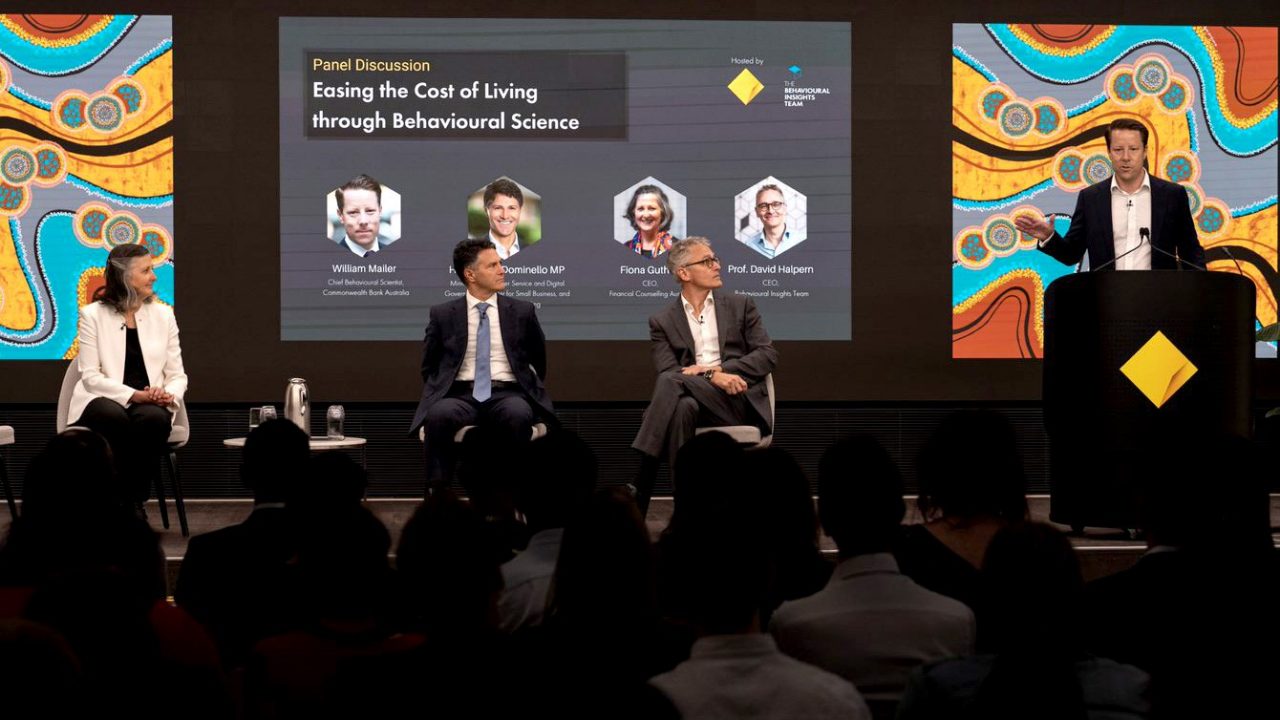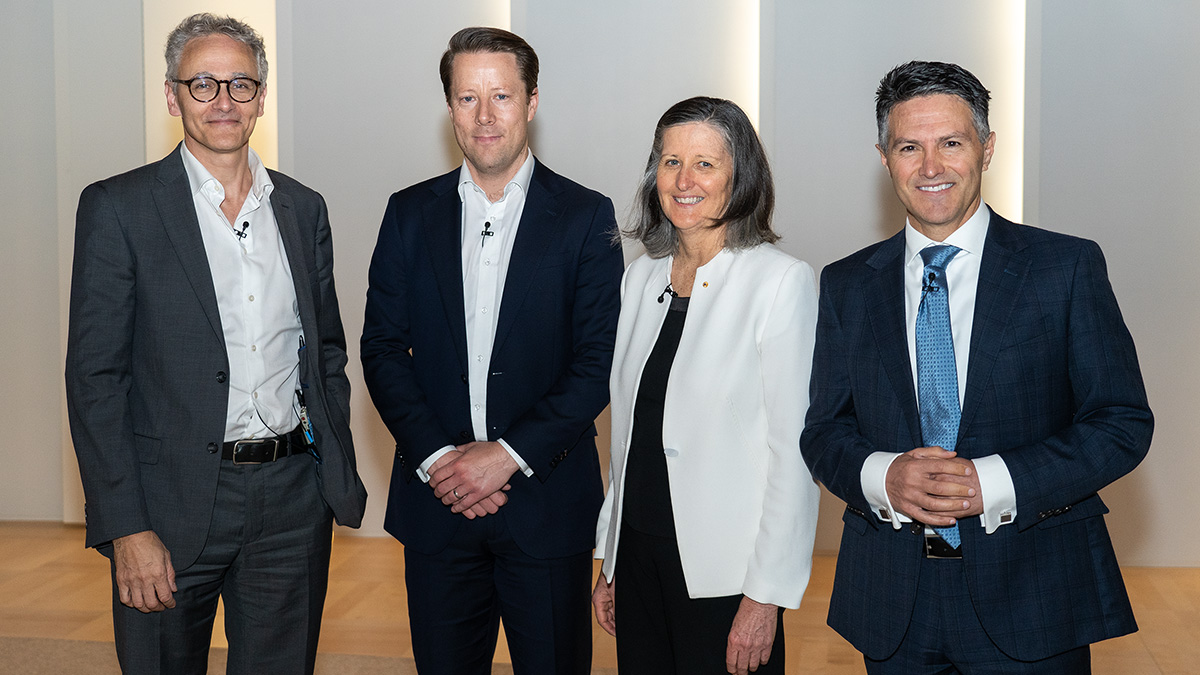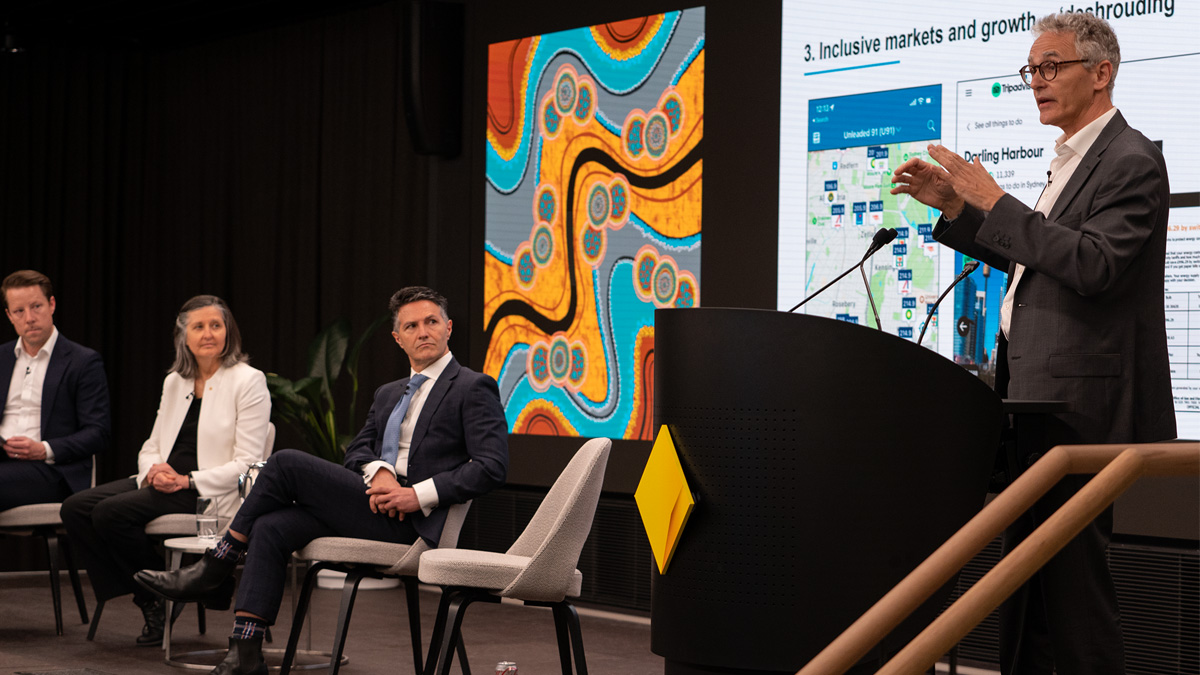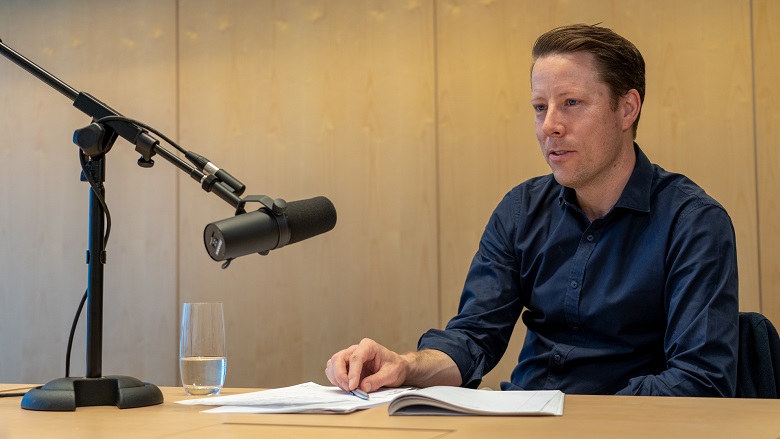“We can continue to ask people to run faster, but at some stage it might be helpful to give them a bicycle,” said Professor David Halpern, CEO of the Behavioural Insights Team (or “Nudge Unit”).
New behavioural science units in NSW Government, Federal Government, big tech and banking have been busy demonstrating new ways to think about products and support tools to help millions of Australians more easily adjust to real wage and price changes.
Last week, CommBank and the Behavioural Insights Team hosted a panel event looking at how behavioural science can help to ease the cost of living.
Facilitated by Will Mailer – CommBank’s chief behavioural scientist — the event featured a keynote presentation from Professor Halpern, and a panel discussion with the Honourable Victor Dominello, NSW Government Minister for Customer Service and Digital Government, Minister for Small Business, and Minister for Fair Trading; and Fiona Guthrie AM, CEO of Financial Counselling Australia.
 Fiona Guthrie AM, The Hon. Victor Dominello, Professor David Halpern and Will Mailer
Fiona Guthrie AM, The Hon. Victor Dominello, Professor David Halpern and Will Mailer
Professor Halpern reminded us of the human tendency to think in two speeds: fast and slow.
We need our slow thinking speed to reassess those expensive subscriptions, put money aside for later and navigate complex support services. But our fast thinking can work against this, looking only at the headlines, and putting off the hard financial trade-offs for later.
“When was the last time you bought something at 2am and then woke up the next day and said, that was a good idea?” Professor Halpern remarked.
Panellists shared a number of behaviourally informed examples from across sectors, including CommBank’s Benefits finder, which has helped Australians to connect to around $500 million in previously unclaimed benefits and rebates.
Other suggestions pointed to opportunities that make it easier for people to overcome inertia and cancel unwanted subscriptions; technologies that made risky or harmful spending harder; or the better use of data to help people navigate to lower petrol or insurance prices.
Strong recurring themes throughout the panel were around the better use of data to identify areas with potential cost of living challenges earlier, and the need for cross-sector solutions to be as effective as possible.
Mr Dominello and Professor Halpern both pointed to the opportunities available in some organisations and how timely insights combined with behavioural design could be a game-changer.
Ms Guthrie provided a powerful reminder to the audience that while nudges might help in some cases, it won’t be enough for many Aussies who are facing more serious cost of living situations. Looking forward on what we need to do longer term, Ms Guthrie posed a question to the panel and the audience: “What type of society do we want?”
All panellists praised CommBank’s efforts in behaviourally designed banking technologies, although pushed for banks to do more. Professor Halpern referenced UK “challenger” bank designs as another benchmark for the use of behavioural science in financial health and customer engagement.
 Professor David Halpern, Will Mailer, Fiona Guthrie AM and The Hon. Victor Dominello
Professor David Halpern, Will Mailer, Fiona Guthrie AM and The Hon. Victor Dominello
Listen to a podcast related to the event, with Will Mailer and Professor Halpern. If you need support with cost of living pressures, CBA has a range of tools, tips and guidance articles to help you offset the rising cost of living.
Go to CBA Newsroom for the latest news and announcements from Commonwealth Bank.


